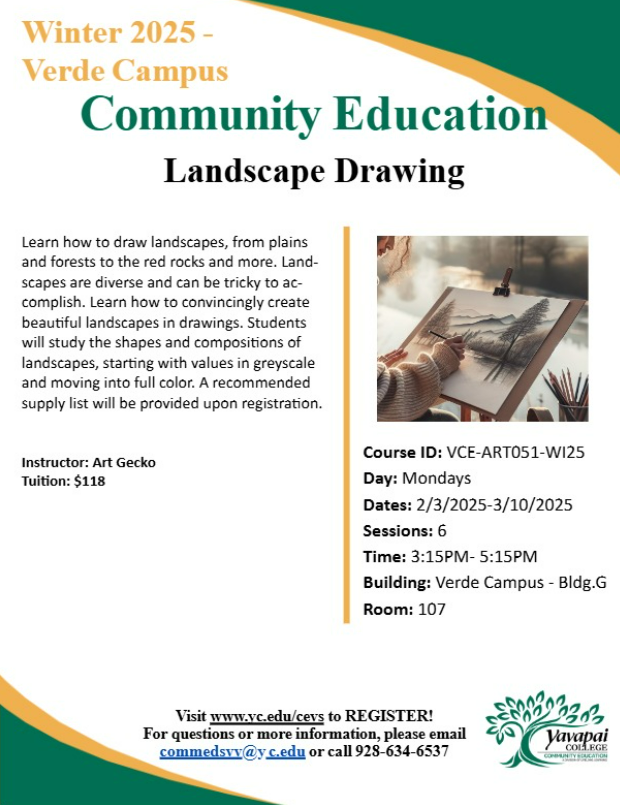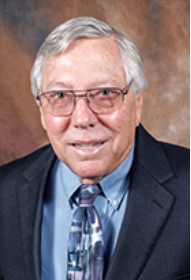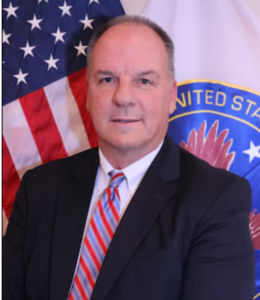Topics will likely include election of officers and a “refresher workshop” intended to impress upon members their extremely narrow window of responsibility, as seen by the Administration. Actual agenda not yet posted.
 The Yavapai Community College District Governing Board will hold a workshop meeting on Tuesday, January 14, 2025, at the Rock House on the Prescott Campus. The meeting is scheduled to begin at 9 a.m. and is expected to conclude around 4 p.m. A live stream of the meeting will most likely be available on YouTube.
The Yavapai Community College District Governing Board will hold a workshop meeting on Tuesday, January 14, 2025, at the Rock House on the Prescott Campus. The meeting is scheduled to begin at 9 a.m. and is expected to conclude around 4 p.m. A live stream of the meeting will most likely be available on YouTube.
The agenda for the workshop has not yet been published. However, it is anticipated to include the selection of District Governing Board officers and a “refresher workshop.” These workshops typically involve discussions aimed at emphasizing the Board members’ extremely limited authority as seen through the eyes of the Community College administration. These often include specific restrictions on whom members may communicate with and what they may disclose to their constituents. They also often include warnings against interfering with the College President’s management of the institution and an extremely narrow interpretation of Board policy, as outlined by a consultant selected by the chair with a past relationship with the Community College administration.
Members of the public are generally not permitted to speak during these workshop sessions. However, under Arizona law, the public has the right to attend, listen, record, or videotape the meeting, provided they do not disrupt the proceedings. For more information on these rights, refer to Arizona Attorney General Opinion No. I78-001.
Further updates, including the agenda, will be provided as they become available.
 The Greater Verde Valley Chamber of Commerce will hold a mixer at the Southwest Wine Center on the Verde Valley Campus January 16. The event is hosted by the Southwest Wine Center and will be catered by the Sedona School of Culinary Arts. It begins at 5:30.
The Greater Verde Valley Chamber of Commerce will hold a mixer at the Southwest Wine Center on the Verde Valley Campus January 16. The event is hosted by the Southwest Wine Center and will be catered by the Sedona School of Culinary Arts. It begins at 5:30.


 On December 13, Yavapai Community College celebrated the graduation of 52 nursing students at traditional pinning ceremonies held at the Jim and Linda Lee Performing Arts Center on the Prescott Campus. The event also marked a milestone for the college as it recognized its first cohort of students to complete the Bachelor’s Degree in Nursing.
On December 13, Yavapai Community College celebrated the graduation of 52 nursing students at traditional pinning ceremonies held at the Jim and Linda Lee Performing Arts Center on the Prescott Campus. The event also marked a milestone for the college as it recognized its first cohort of students to complete the Bachelor’s Degree in Nursing. The Sedona Red Rock News published a front-page article on December 11, written by Tim Perry, that examines a controversial policy adopted by the outgoing lame-duck Yavapai Community College Governing Board at its November meeting, the last of the year. The article raises serious questions about whether the policy infringes on the rights of elected Board members to engage with staff, faculty, and the public on matters of public interest.
The Sedona Red Rock News published a front-page article on December 11, written by Tim Perry, that examines a controversial policy adopted by the outgoing lame-duck Yavapai Community College Governing Board at its November meeting, the last of the year. The article raises serious questions about whether the policy infringes on the rights of elected Board members to engage with staff, faculty, and the public on matters of public interest. In a news release dated December 16, 2024, Yavapai Community College (YCC) announced that ten paramedics have successfully completed the College’s rigorous training program and are now certified to serve their local communities. Many of the graduates are already affiliated with first-responder agencies such as the Prescott Fire Department, the Central Arizona Fire and Medical Authority, the Copper Canyon Fire District, and the Groom Creek and Cottonwood Fire Departments.
In a news release dated December 16, 2024, Yavapai Community College (YCC) announced that ten paramedics have successfully completed the College’s rigorous training program and are now certified to serve their local communities. Many of the graduates are already affiliated with first-responder agencies such as the Prescott Fire Department, the Central Arizona Fire and Medical Authority, the Copper Canyon Fire District, and the Groom Creek and Cottonwood Fire Departments.